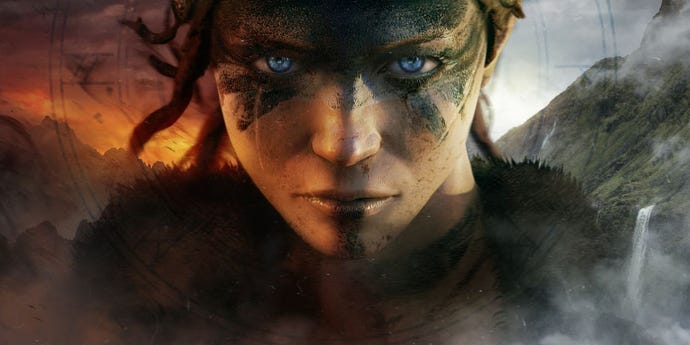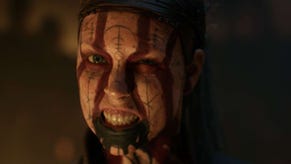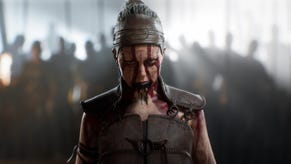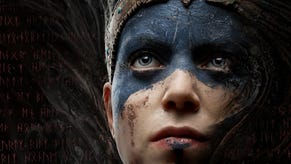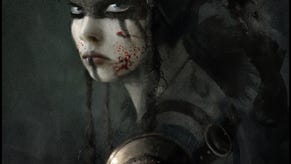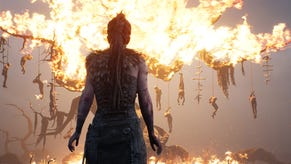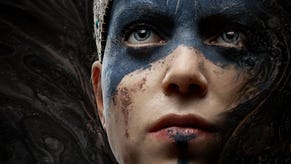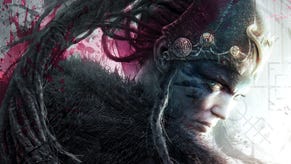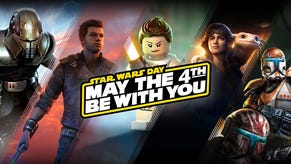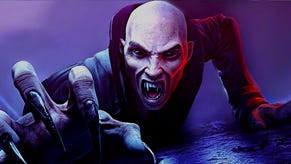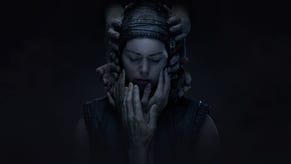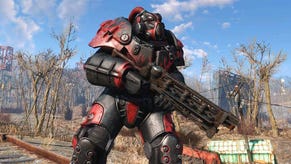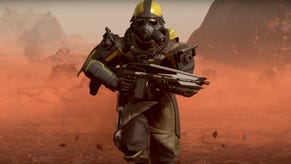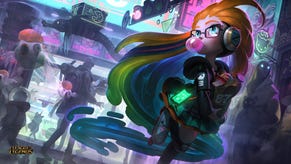Can Hellblade mix Dark Souls-style combat with real-world mental health issues?
The maker of Heavenly Sword is undertaking its most ambitious project yet: a tense one-on-one fighter that hopes to tackle very real mental health problems.
Immediate impressions of Hellblade are good. Celtic heroine Senua explores a beautiful mystical woodland, solving esoteric puzzles and fighting mythical creatures in tense one-on-one combat. Swords clang with force, light beams on solutions to flexing problems, and the atmosphere is thicker than Highland fog.
But behind that is something much more interesting, both in what developer Ninja Theory hopes to achieve and the way it's building it latest game.
Firstly, Hellblade is going to be a smaller game than previous blockbusters Heavenly Sword, Enslaved and DmC, and it will have a lower price to match. That's not to say it's a budget game. There may only be a small team of 15 working on it, but with the creative control that self-publishing (and self-funding) allows, Ninja Theory is free to make exactly what it wants.
A compact team, limited costs and smaller sales ambitions can be liberating for a developer. "We want to make creative games and take risks but still hit those high production values you associate with triple-A," says Ninja Theory's Dominic Matthews. "We have to sell about 300,000 units to make its money back. It's not easy but it's more achievable than making a Triple-A game and aiming for five million units".
Beyond the business realities, Ninja Theory intends to deliver on the core pillars it's become known for: beautiful art direction, engaging melee combat and compelling stories. It's the latter where it's really ramping up ambition, with the intent of addressing and discussing mental health issues through protagonist Senua.
"It's the story of a celtic warrior and her journey into hell," details Matthews. "That hell is a manifestation of her mental illness. She experiences psychosis, hallucinations. As the player you see that world through her eyes.
"It's a challenging subject which we're committed to delivering in a truthful manner," he adds. "We're working with the Wellcome trust, a professor of neuroscience and also people who have direct experiences of mental health issues and take direct feedback on board. We're trying to learn as much as we can so we can portray these experiences truthfully."
It's too early to judge if that will truly work, but it already feels like an honest and admirable attempt by Ninja Theory to shed light on a subject that can still be considered taboo despite one in four people in the UK alone experiencing mental health problems. Hellblade certainly doesn't seem to be exploitative in anyway, nor using these issues in a crass manner.
Anyone worrying that "issues" might get in the way of a good game needn't worry. I only played a short section of Hellblade but it looked great, offering mystery and teeth-gritting fights. Combat is tough and tense, and has that same sense that one simple mistake can cost you your life that you find in the Dark Souls games. There's no hack-and-slash button mash here; it's an early build but seems to reward timing and precision, where you watch patterns to push the slim advantages that open up in your favour.
"What we have at the moment is basic," admits Matthews. "It's essentially a one-on-one fighter. The camera is very tight. We wanted it to feel like each fight matters." It's going to evolve through development into a combo system, says Matthews, and there's only one weapon involved: "It's up to you as a player what works for you."
Put the sword away and Senua will move a little quicker as the camera pans out for a wider a view. It's not the traditional third-person view seen in something like the Witcher, more over-the-shoulder, and seemingly designed to create a feeling of claustrophobia despite being outdoors.
The last element of Hellblade is its puzzles, which blend into the environment and are revealed by Senua's extra sense. Once triggered, the world looks a little differently and it's easier to find clues related to your objectives. "It's linked to this idea that people who experience psychosis see patterns in the world," offers Matthews. "The world around Senua affects her fear and it intensifies."
One such puzzle involves completing a stone circle and following shafts of light breaking through the clouds. It's subtle to the point of being esoteric, but that's more appealing to me than a screaming neon arrow pointing the way, and it makes a nice cerebral break from the punishing sword fighting.
Hellblade is a game where you stand your ground and fight to the death. It achieves a sense of tension found in games like Resident Evil or Dark Souls, where single fights are meaningful, and the relief of surviving another encounter is tangible. But aside from the traditional game it's addressing
It's such a wide-ranging area, metal health; people's experiences are unique to them. We can't hope to portray an individual experience, but if we can be truthful to them and learn from them then we can do it justice.
Hellblade is coming to PS4 and PC. There's "about another year" of development left.
